|
My name is Cameron Morris Weber, below you will find some personal information about me. This is a short biography I did for a publisher. This is my Featured Author page at Routledge.
I was born in Chicago and when I was growing up I lived with my family in various parts of the Midwest USA (Chicago, Minneapolis, Omaha). We moved to a small town in New Mexico when my Dad left corporate America and he and my Mom bought and built-up a business or two in NM. I worked for my family businesses during high school and college when school wasn't in session. I helped my parents for many years in their various entrepreneurial ventures and they in mine.
I left home in New Mexico to go to college in New Orleans, a city I still love and try to visit as much as possible. It is in New Orleans where I first started writing, a practice I enjoy through today. I live in the Sunset Park neighborhood in southern Brooklyn after moving to New York City in order to study economics and history.
This is a word cloud of the content of this "Personal Info" page:

I completed a dual PhD in economics and historical studies at the New School for Social Research in Manhattan in August 2015. We also created a new field at the New School called "cultural economics", the economic study of art and related media. Here is my dissertation which is about the political economy of art and especially as related to the United States.
See the "Projects" page for my work in cultural economics, including our book on Routledge (2024) Musicians and Markets, which was issued in paperback in December 2024. I helped to host the North America Workshop on Cultural Economis in Washington DC in November 2024 and in October participated in the Value Based Approach to cultural analysis workshop hosted by a fellow of Wolfson College at Cambridge University.
In 2020 and 2021 during the covid era when the schools were locked-down and teaching went virtual, I created a YouTube channel in order to make the lectures available to my students at the time. The videos are about economic principles and are the cumulation of 13 years of teaching experience. I use current and historical events to teach economic ideas. You can see "Teaching" for more information.
Recently I have been adding videos about cultural economics to this site. This one discusses our project about the Cantillon Effect in art markets, which illustrates how active central bank monetary policy helps to create wealth and income inequality.
I produce a Brooklyn Free Speech Media show called Hardfire TV taking over for a friend who created more than 100 shows. I had appeared in several of his productions as a guest. At the time he was using analog film and editing and I brought the show 'digital'. Hardfire TV is on a monthly schedule and appears 6 times per month city-wide and simultaneously streams through the BRIC Arts Media House. Over the last 8 years producing Hardfire I have made more than 75 programs.
It is a discussion format about current events and ideas based on classical liberal concepts. This is our March 2023 program after one year of the Ukraine situation and how we got here and why. This program is called "Ukraine as Vietnam?". The October 2024 program is about the speech censorship which occured during the covid era as discovered by Open the Books, the twitter files and Congressional investigation. We also discuss the state science of the covid era in our book Artists and Markets in Music: Political Economy of Music in the Covid Era and Beyond (Routledge 2024).
This is a proposal I have written for a Hardfire TV program about the (Trumpian) relationship between the US debt and the trade deficit, because this idea of the "twin deficits" is not well-enough known. The guests on the program would be members of the Manhattan Libertarian Party.
I also write songs and play acoustic guitar in Big Noise BK with Chelsea, Eugene and our new bandmate Matthew, here is our YouTube channel. Big Noise BK has made five albums and one EP. Here are me and Chelsea playing some Big Noise songs at our South Brooklyn coop apartment party on Lunar New Years Day 2020. We recorded an EP "Along for the Ride" in March 2023 which was also released in vinyl version in December 2023. The 12" 45 rpm vinyl version is available on eBay. I created a Discogs entry for our DIY record. Discogs is an interesting expirement in the crowding-sourcing an inventory of music which is available on physical media. You can also find our music on Spotify, Pandora, iHeartRadio and Amazon Music.
We have opened up Brian Dillon and Brooklyn Vlad's July 4 party in south Brooklyn for the last 10 years. It is an all day party with keg beer, BBQ and lots of musical talent from BK. Here we are at the 2024 version. We also busk in Williamsburg and elsewhere, time and weather permitting. Our most recent album (January 2025) is called "Brooklyn Summer" and will be a YouTube-only release.
 
Chelsea and I enjoyed creating a country-rock band, where I played the drums, called the Newtown Creek Ramblers, until Robert moved to the West Coast.
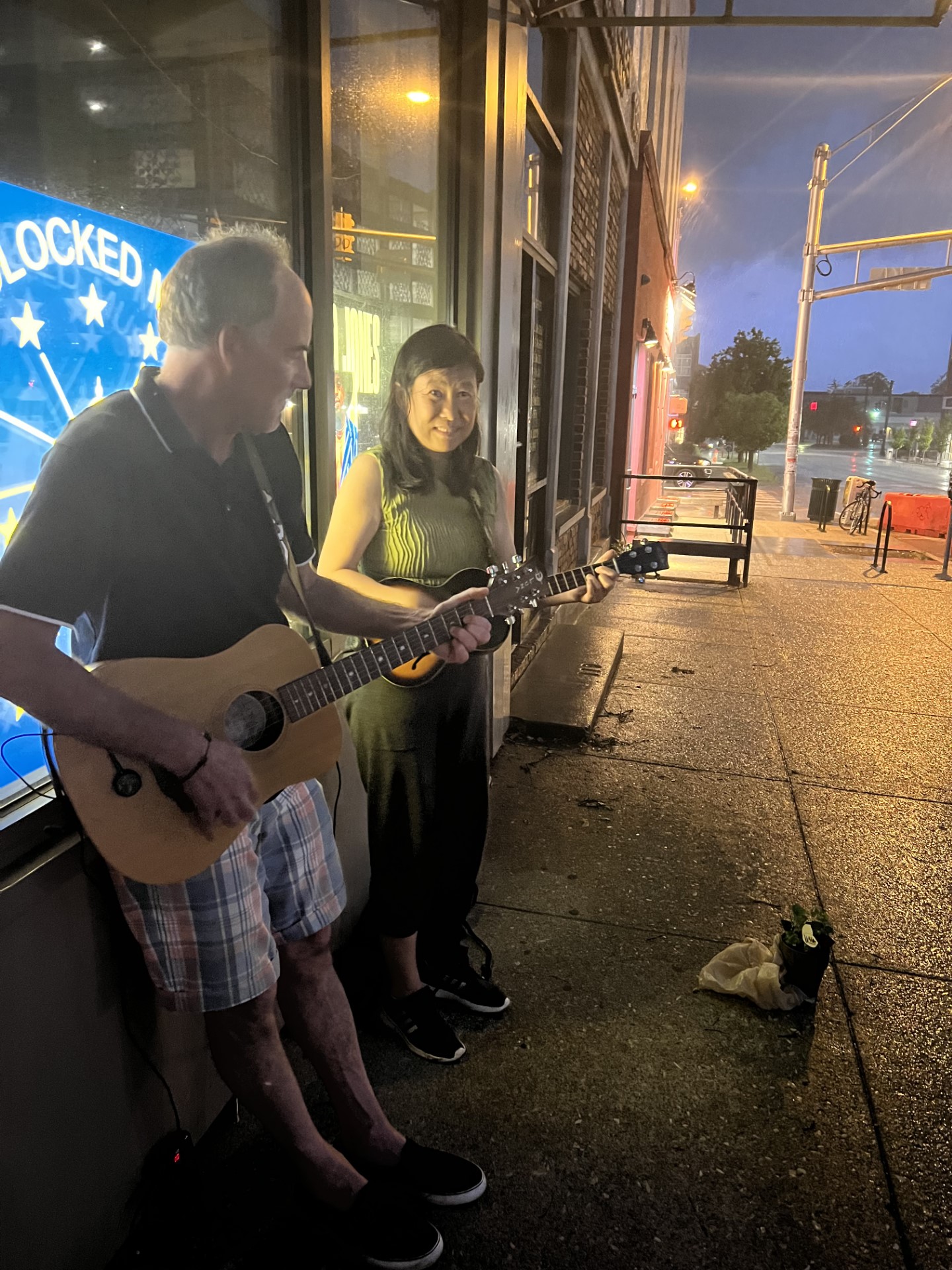
Busking in Bloomington, IN USA in June 2023, photo by BC.
I am collaborating with a friend and colleague Don Green who helped stage, promote and film the Reggae Sunsplash Festival. The festival occured annually in Jamaica and in over 15 countries from 1978 to 1994 (Bob Marley appeared at the Fesitval in 1979). Don has over 300 analog tapes (200 hours) of these concerts in at the time state-of-the-art Beta and U-matic format for which Don negotiated the rights with the artists. We have created a not-for-profit organization to restore, preserve, digitize and share these performaces. (Here is a bootleg of the Festival with Toots and the Maytals).
Our project ensures the highest quality availability of these performances, better than the bootlegs and with the rights going to their owners. We created a YouTube channel for the project. You can learn about our archival work and our not-for-profit organization through our website. This is a piece St. John's University wrote about our project. Here is a poster I mentored with Joe Pellrine who helped us to create the film archive for the project.
Here is a short video about our Sunsplash project we made in March 2018. Our digitization was effectively put on hold for two years due to the covid-era studio lockdowns but we resumed in 2023 and have preserved and digtized more than 75%of our film archive (November 2024).
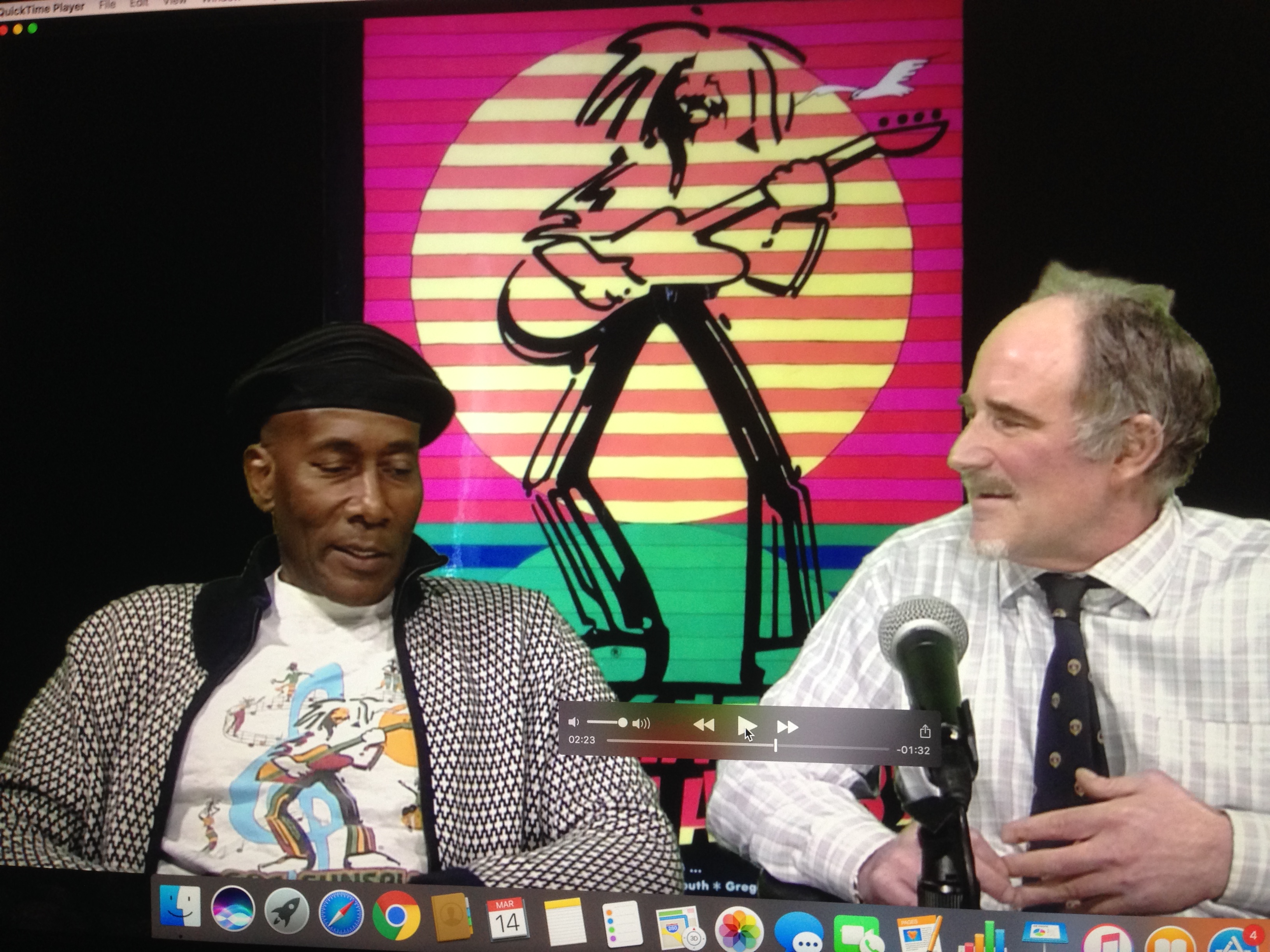
This is me enjoying a day trip to a sunny Mexican border town in early 2018. I love the South Rio Grande Valley, great seafood, local grapefruits and oranges, down-home living, BBQ and country music.
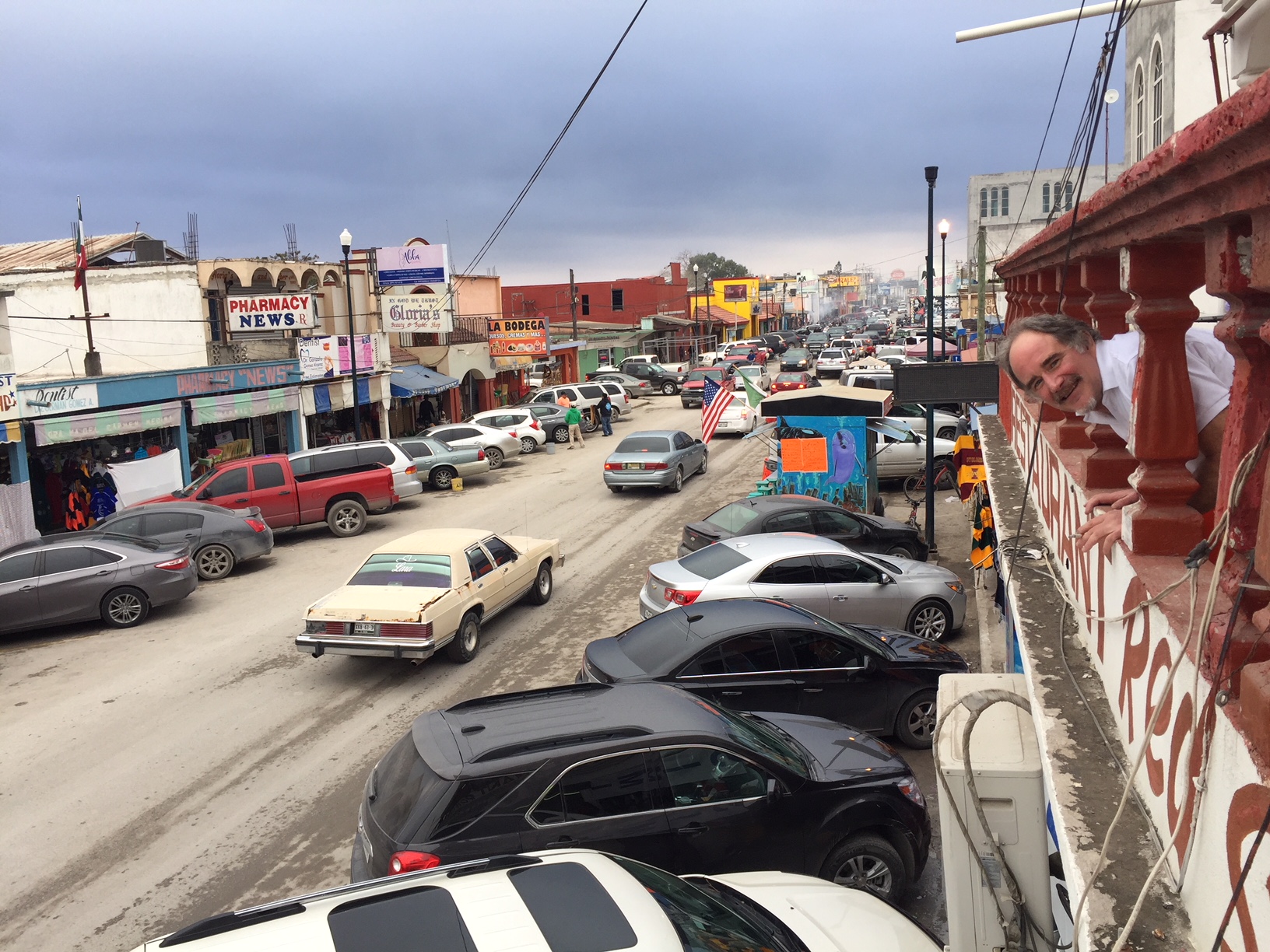
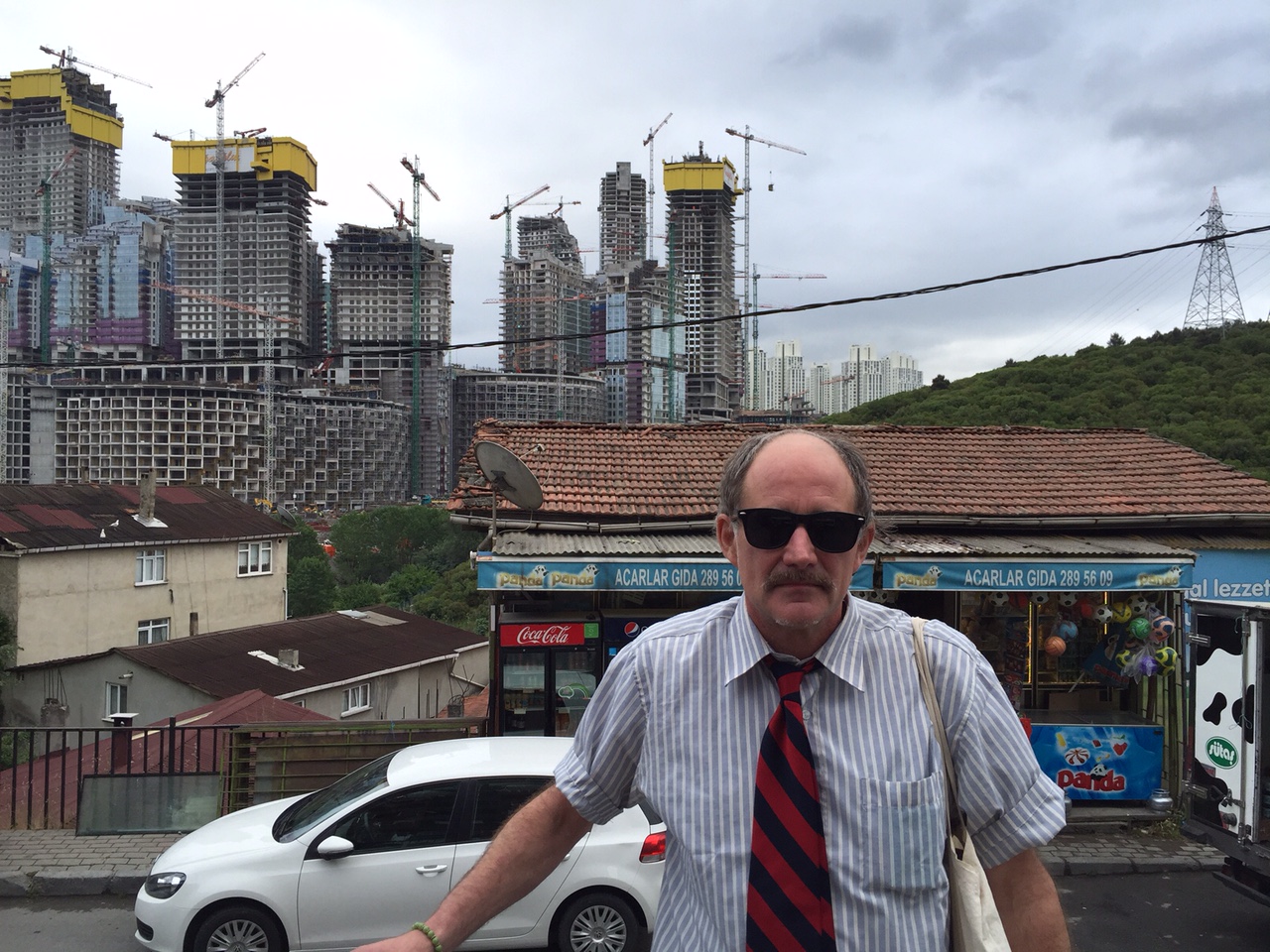
Photos: Chelsea
Over the summer 2015, I attended a symposium in Istanbul, Turkey (see "Projects"). Here is a picture near the conference site. You can see the crazy level of building during the low (near zero, in the EU, negative) interest rate policies of the US Fed, the EU Central Bank and the Japanese central bank since the 2008 financial crisis, making easy money available and causing unsound over-investment in real estate and tech firms. (This bubble economy was re-inflated by the fiscal and monetary responses required by the covid-era lockdowns.)
Now that interest rates are high again in 2024 in the US we have seen 'corrections' to the easy money booms in real estate. Just like the over-investment in housing due to low interest rates prior to the financial crisis of 2008. Here we go again. There is actually a pop culture explanation of this phenomenon on wiki called "the skyscraper index."
There is also a relatively new book, well-researched and argued, on central bank monetary effects on asset investment and prices called the The Skyscraper Curse by Mark Thornton. Relatedly I am in collaborative research with two other cultural economists in an attempt to discover and quantify the relationship between money supply changes and asset prices - called the Cantillon Effect - specifically art (painting) prices (see "Projects").
I have an interest in many areas of economics but mostly political economy and the history and philosophy of economics. I consider myself (if we must have labels) a political economist. I joined the Association for Cultural Economics International as found some good economists doing interesting work. I have attended meetings in Kyoto, Copenhagan, Boston, Montreal, Vallavolid, Spain, Australia and last year in Bloomington, IN. I started to help coordinate the North American Workshop on Cultural Economics in conjunction with the ACEI. Our first one was held November 2022 in Ft. Lauderdale and most recentlyin Washington, DC November 2024 ("Projects").
The larger area of interest here is the cultural transformation in the USA from an individualist society to one of a collectivist or welfare state society and how this manifested historically in politics, economics and institutions, through today and a massive nation-state government with the largest debt balance ever created in the history of mankind. On a smaller scale I am simply interested in art and museums and libraries and the representation of public spaces and how we see ourselves as a people, art, of course, having the ability to transcend political boundaries yet capture specific times and places, both economically and socially.
I also support the Society for the Development of Austrian Economics. I think this school of thought does the best at explaining how the economy actually works in our political and social settings. Although highly respected by some (F.A. Hayek shared the Nobel Prize for his explanation of the business-cycle, we did a Hardfire TV show about this). "Austrians" are mostly outside of the mainstream of the economics power structure, probably because Austrians believe that the axiomatic use of mathematics and quantitative aggregates don't really provide too much insight into human relationships, and most, if not all, mainstream economics is highly mathematical. Most mainstream economics too views people as part of a 'system' which can be improved-upon by the use of expertise, as opposed to decentralized human exchange with others, something which I don't find too appealing. I think society, and of course people, can't be limited to this categorical type thought. I have also participated in the Public Choice Society and am a member of the History of Economics Society.
My friend Guin Liberty Nell edited a book on the Basic Income as an alternative to the welfare state in 2013, and I have a chapter in it (see "Publications"). I found that if we defund federal corporate and social welfare (which goes to some people), we could give $1,000 a month to every person in the United States age 21 and over. I updated the research for 2015 data and found that we can replace the welfare state and give everyone ages 18 and over a Basic Income which is above the poverty level in the lower 48 states. We also created a Hardfire TV show on my latest research on the Basic Income. Please note that I am arguing to replace the welfare state with a Basic Income, not have a basic income in addition to the welfare state.
Had we implemented a Basic Income before the covid era we may not have needed $6T in federal 'emergency' spending and $6T in monetary expansion, both of which have exacerbated inequality and uncertainty through asset appreciation and inflation creation.
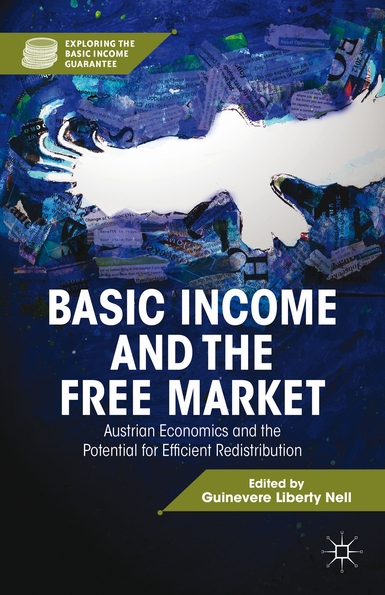
Social relations might help define who we are, but that does not mean we should be limited by the concept of society as 'system'. Here is a presentation I did in June 2010 at the Summer Institute for the History of Economic Thought, hosted by the University of Richmond (Virginia, USA), comparing Karl Marx's theory of the class struggle and historical progression with the French Enlightment thinkers (or French Radicals given the context) who preceeded Marx in a unified social theory of an economics leading to human freedom. The French liberals thought value was increased through human exchange, whereas Marx, following the physics of the day, thought that value was merely conserved. My point here of course is that we are free to gain from our interactions with others.
Before moving to New York to live and study I was a diplomat in Senegal (so speak a little French) and Kazakhstan (and some Russian) with the United States Agency for International Development (USAID) for several years. I learned alot about people and cultures living overseas. For career advancement and more sense of control over my future I left the Foreign Service to become financial controller for USAID's $20 some billion in loan programs, a congressionally-mandated position based in Washington, DC. This was very good experience to have albiet a bit frustrating to work in DC for prolonged periods of time, a place not known for its bureaucratic creativity.
After helping to build-up USAID's capacity to manage its credit portfolio, including passing an audit, I then became the chief of financial oversight and coordination at the Department of State during the State Department's financial management improvement efforts under Colin Powell. It was a fine day when General Powell swore me in as a State Department employee, though to be honest I am not a big fan of war and interventionism overseas, being a "classical liberal" in this regard.
Around the time I started the MBA program at the University of New Mexico I had a 'vision' that public service might be a good way to earn a living. I started working with the US government as an accounts payable clerk and near the end of my first 6 months in Washington I ran into someone in the elevator and showed them some things I was writing. One of these papers was on the unsustainability of the Euro-zone and the proposed common currency because it would remove fiscal and monetary accountability from member states, something which has borne true if you are following the Greece situation, and then Ireland, and then Spain...but exemplary of larger problems with all welfare-states.
My friend showed these writings to their boss, and then a bit later I was promoted to a policy analyst, where I evaluated legislative proposals and wrote policies for implementing foreign aid programs. I worked in Washington in various jobs initially for about three years, which included my first trips to Africa. Mali is beautiful, one never forgets the red earth, big sun, natural foods and the gentleness of the people in Bamako.
I then appplied for and was accepted into the Foreign Service with USAID, where my first posting was to Dakar, geograhpically the most western part of the African continent, and a thriving, interesting metropolis in its own right. I was lucky to have had Dakar as my first posting and have been fortunate enough to go back there a couple of times after having lived there. You can learn alot by seeing places in discrete separable moments of time.
I worked for USAID on projects in many countries, mostly in the areas of economic and public sector reform. For example I helped to establish the housing mortgage market in Kazakhstan after 70 years of the communist regime (the only thing people got after the Soviet dictatorship collapsed was the homes that they lived in) and helped to encourage small business lending in Guatemala after their 35 year civil war, both through the offering of partial, risk-sharing, loan guarantees, which it should be noted are different than the 100% US Government mortgage guarantees at the heart of the Great Recession.
Some of this "development" experience (especially working with people from all over the world) I found quite rewarding. Although in the end I found that statist "development" as opposed to voluntary cooperation through exchange is not a good use of society's resources nor for the conciousness of the recipients of aid generation after generation.
Many things bring joy in addition to family and friends, work and ideas. I sometimes think the music of John Coltrane is the closest we will get to the voice of a God, next to our own personal love relationships and family. Shostakovich is supremely profound and sublime as are the works of Beethoven and Mahler.
It is safe to say that the Clash are one of my favorite bands, they were my political awakening when I was a freshman in college, especially their first American record Give 'Em Enough Rope (a paraphrase of V.I. Lenin, who said we - the Bolshevicks - will sell the capitalists the very rope by which they will hang themselves - see above on 100% government mortgage guarantees). Here is one of the best concerts I have ever seen (I think alot of the iconography is from Paul Simonon, the bass player), live in Tokyo 1982.
Here is something I wrote about politics, culture and music, which was published in Liberty magazine.
I publish a small book called Economics for Everyone (see "eBooks"). The idea is to have something that clarifies important points about economics for, yes, everyone, but especially those who haven't had the opportunity or interest enough in economics to learn about it. Higher levels of economics can be very complicated mathematically and technically, but fundamental economic ideas which do effect everyone's day-to-day lives could be better disseminated.
That's why I wrote Economics for Everyone, for some people I know, respect and enjoy who haven't had the opportunity to study economics in a formal setting. I think it is a good primer on economic fundamentals and too covers the unresolved debates in economic policy, but then again of course I am biased because I wrote it. (I also created a Cameron's Teaching Modules channel on YouTube during the lockdown which allows for self-study in basic economic principles.)
I did a second edition to include the Supply and Demand of central bank interventions in the international currency market and the unintended redistribution of income and wealth towards the better-off due to certain government policies. The final section of the new edition uses the Austrian school of economics to describe the Great Recession. Previously I had kept the Austrian School out of the book as tried to keep it as mainstream as possible, but given the resurgence of interest in the Austrian School due to Financial Crisis of 2008 (and note today's covid-era inflation), I believed it relevent for the book's revision. The book is still "for everyone" as is less than 100 pages of simple graphs and exposition. Many of the Austrian School concepts used are advanced in our book in progress Artists and Markets in Music (see "Projects") when discussing the booms and busts of the covid-era.
Further to this autobiographical sketch I relate to modern art and the history of it and the ideas of the people who created it, especially Russian art around the time of the Russian revolution and the Parisian school from the 1920s and 1930s. Man Ray is a favorite, his paintings and writings more than his photography (he is under-rated as a painter and I do tend to go for the underdog).
One of my favorite painters is Amrita Shergil, I discovered her when in India. Here is something a friend sent me (thank you Chris G.) about art and the television show Bewitched which is very well done. I am also a big fan of Russian literature; Gogol, Turgenov, Tolstoy, Dostoyevsky. Russian culture breeds interesting art and literature, at least to the "western" eye.
I also appreciate the painter Henri Matisse for his bold colors and method of abstraction and repetition. Here is a photo of me and a Matisse painting at MoMA. Photo by Dorian, July 2013.
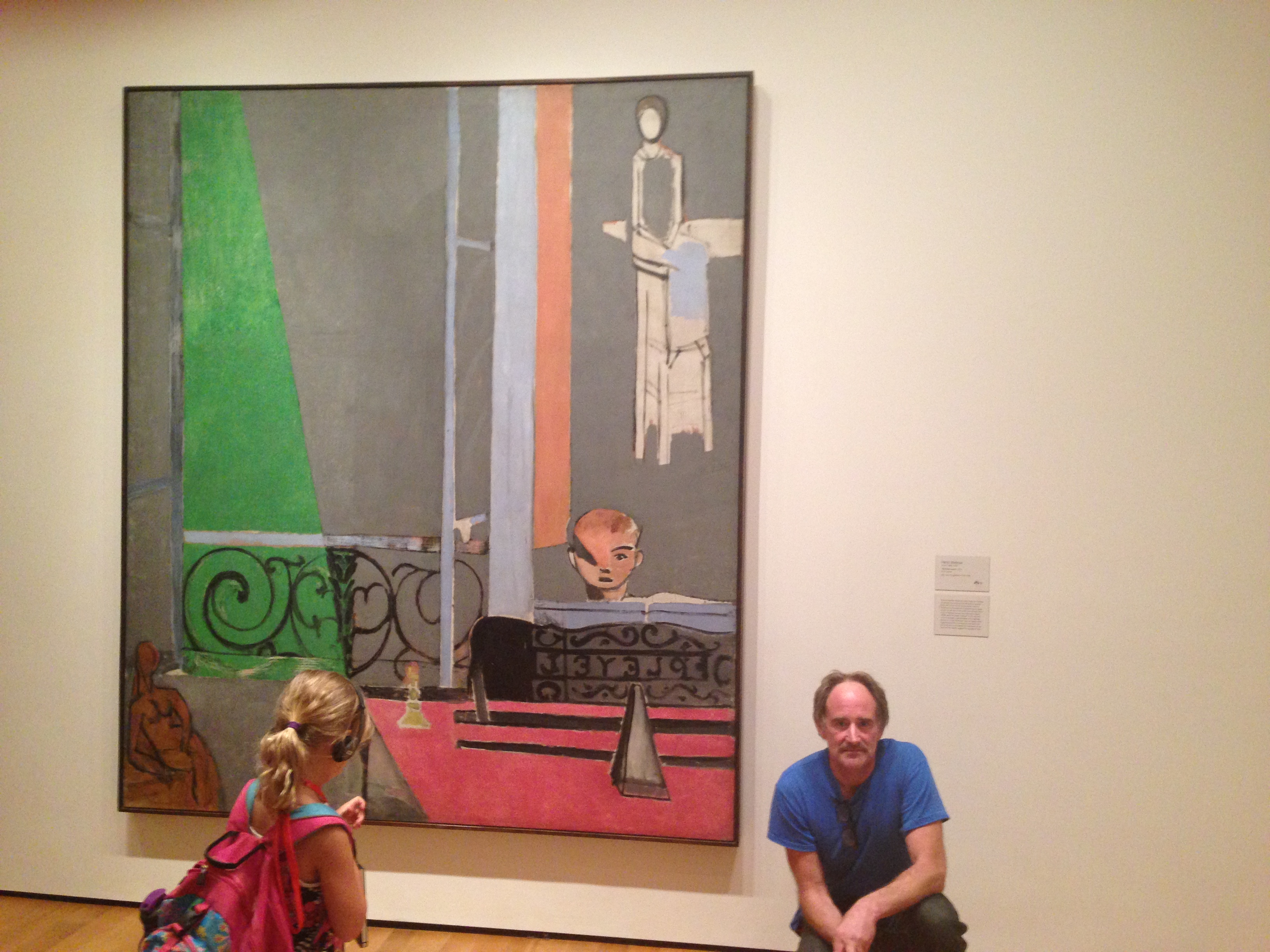
Here are some of my paintings.
Still Life, acrylic on treated cardboard, approx 2' x 2'
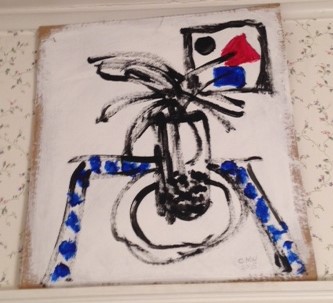
The Last Coal Miner in the U.K. (series), acryllic, sharpie, xerox paper on cardboard, treated with Mod Podge (approx. 5" x 8").
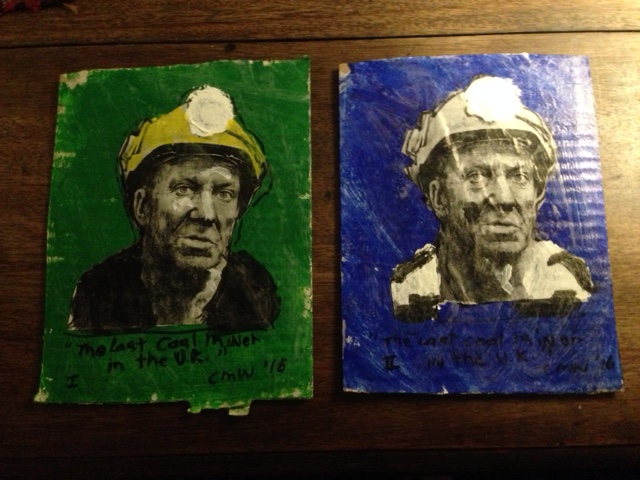
This is called Two Joan Crawfords (2015). Xerox paper, acrylics, Mod Podge on cardboard, approx 2' x 4'
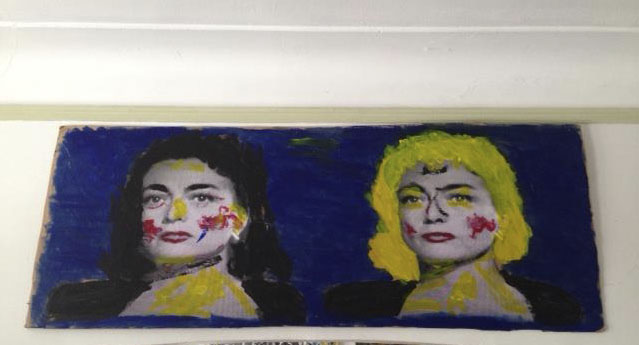
Below find a tryptich collage (all cut from one edition of the Wall Street Journal during the Great Recession in 2011), a take-off on Russian Constructivism. Newsprint, cardboard, acrylic, glue, varnish and canvas.
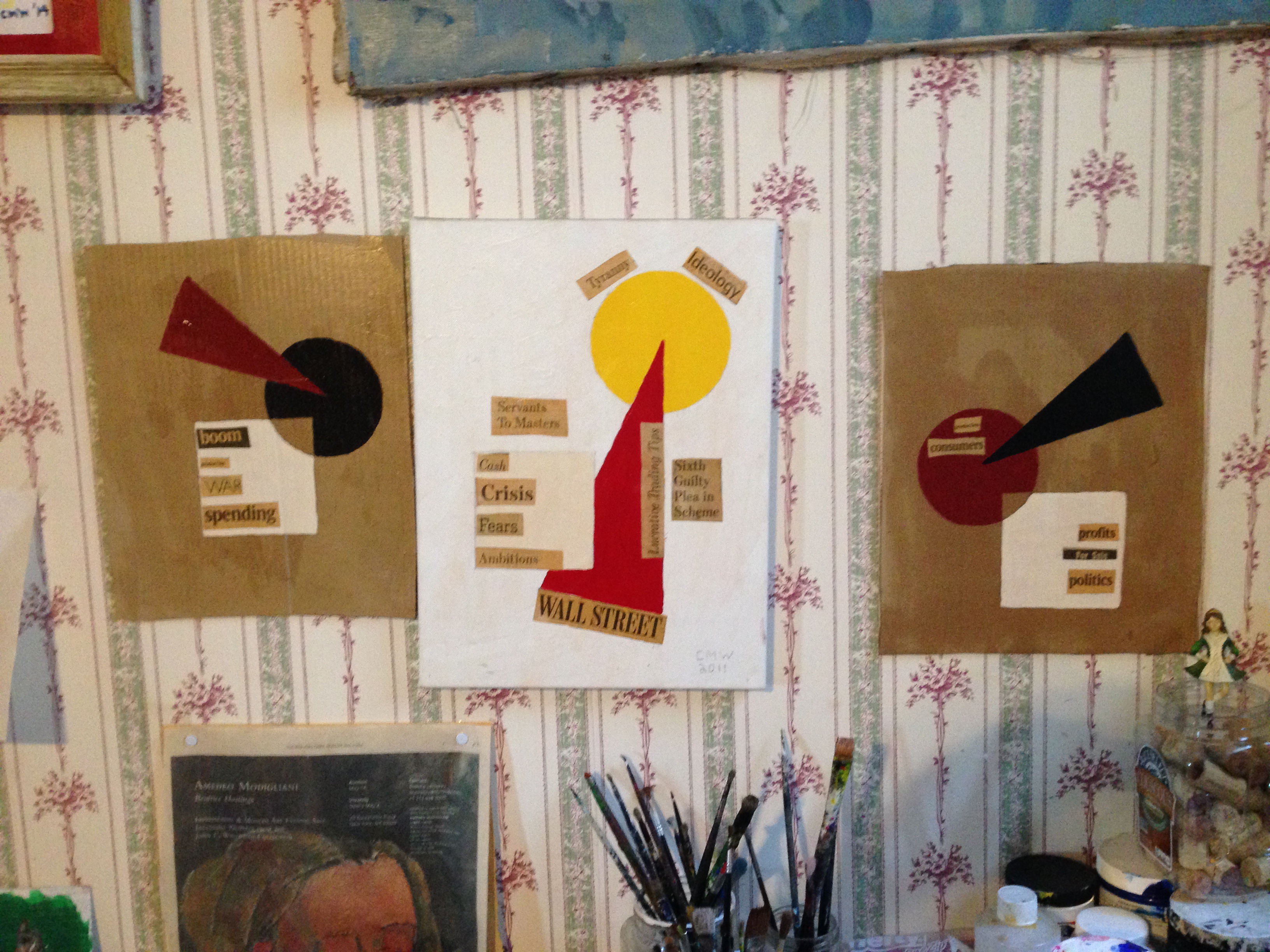
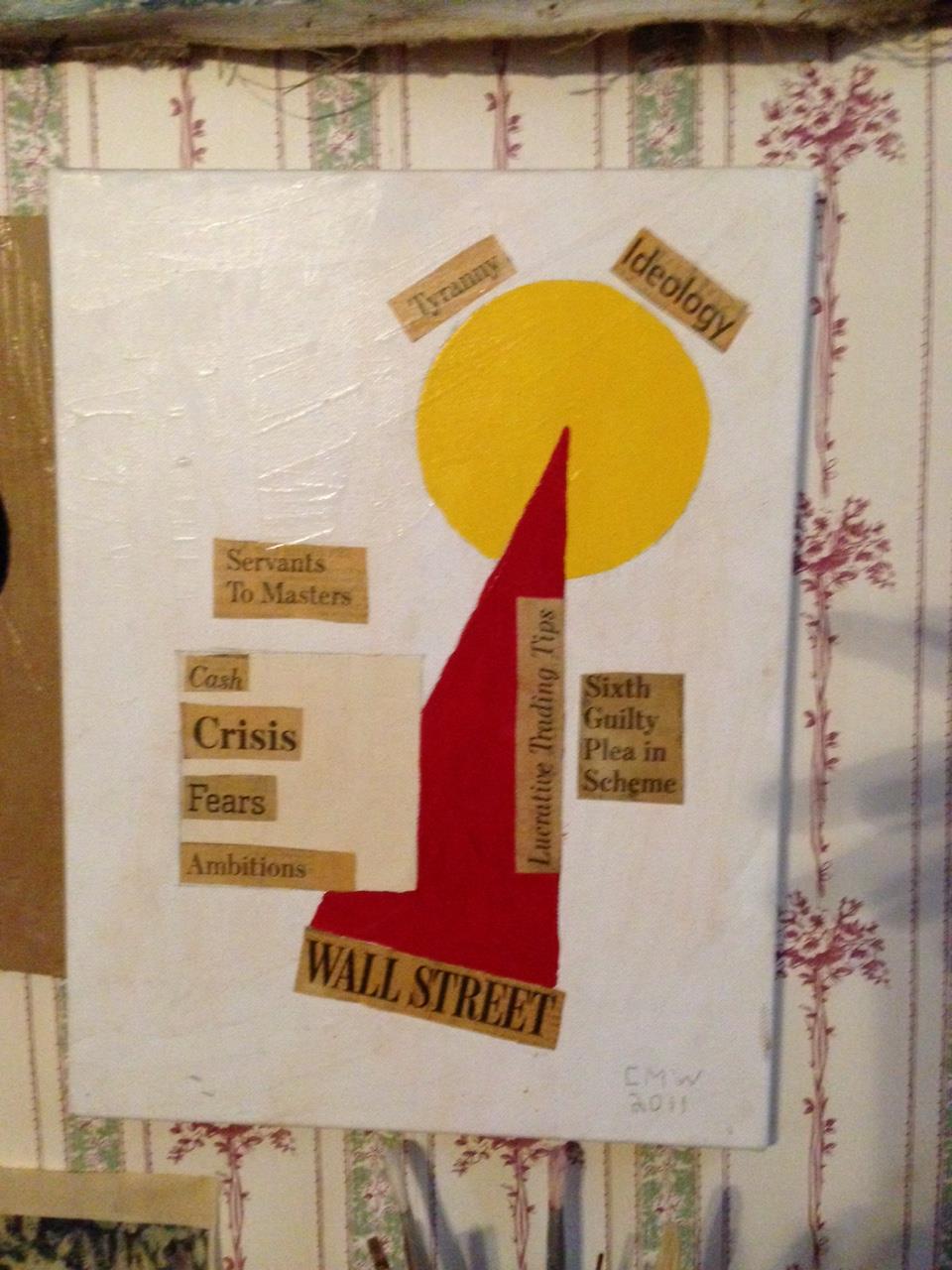
Dennis Hopper Busted, part of a series, when Hopper was arrested in my home state of NM. Xerox paper, acrylics and Mod Podge on cardboard (2014)
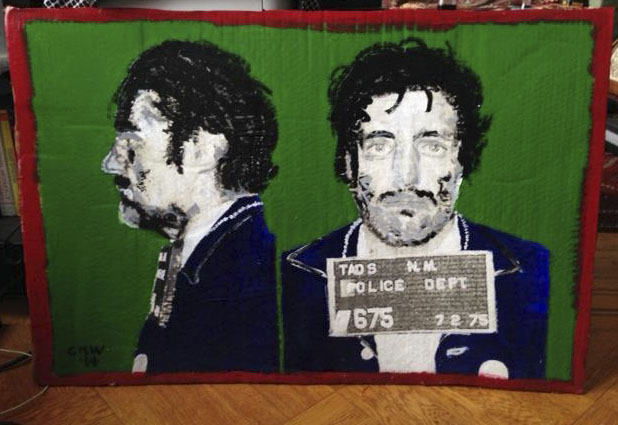
This is an oil on canvas painting called Sunny Spain (2014) which I gave as a wedding present. (approx. 3' x 2').
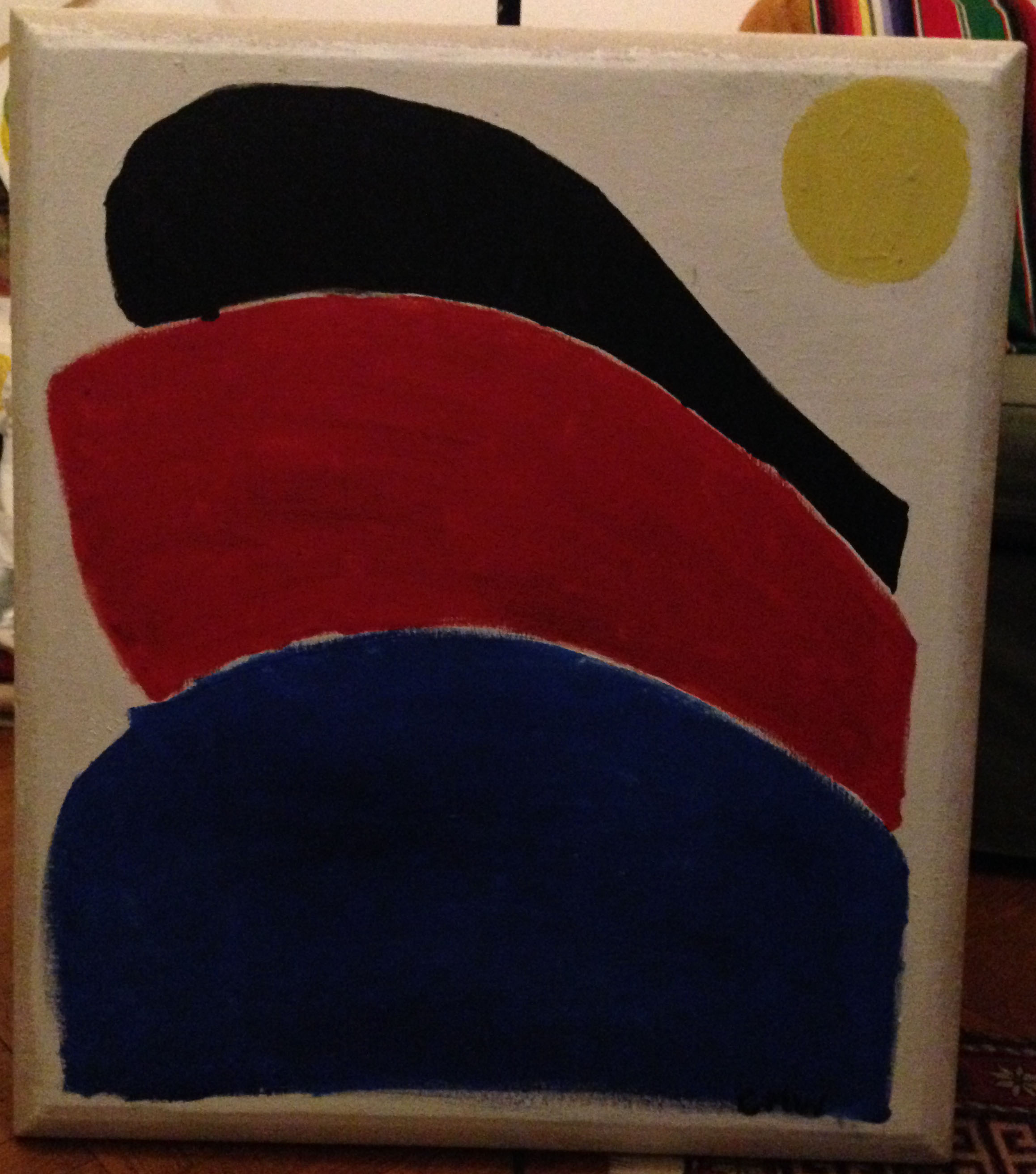
Cornered (2014) Oil on wood, approx. 20" x 20".

This one is along the train from New York to points south. Acrylic on cardboard (apprx 32" x 318"). It is now in Harlingen TX.

This is the Hudson Bay Company in Montreal, the oldest company in North America. Note how its been mostly repurposed. I gave it to a friend when we both in Montreal, he and it are now in the Netherlands. Water colors on paper.
I did this one while in Montreal attending back-to-back meetings of the cultural economic association and the history of economic thought society, it also corresponded with the summer Montreal French-language music festival. Great !
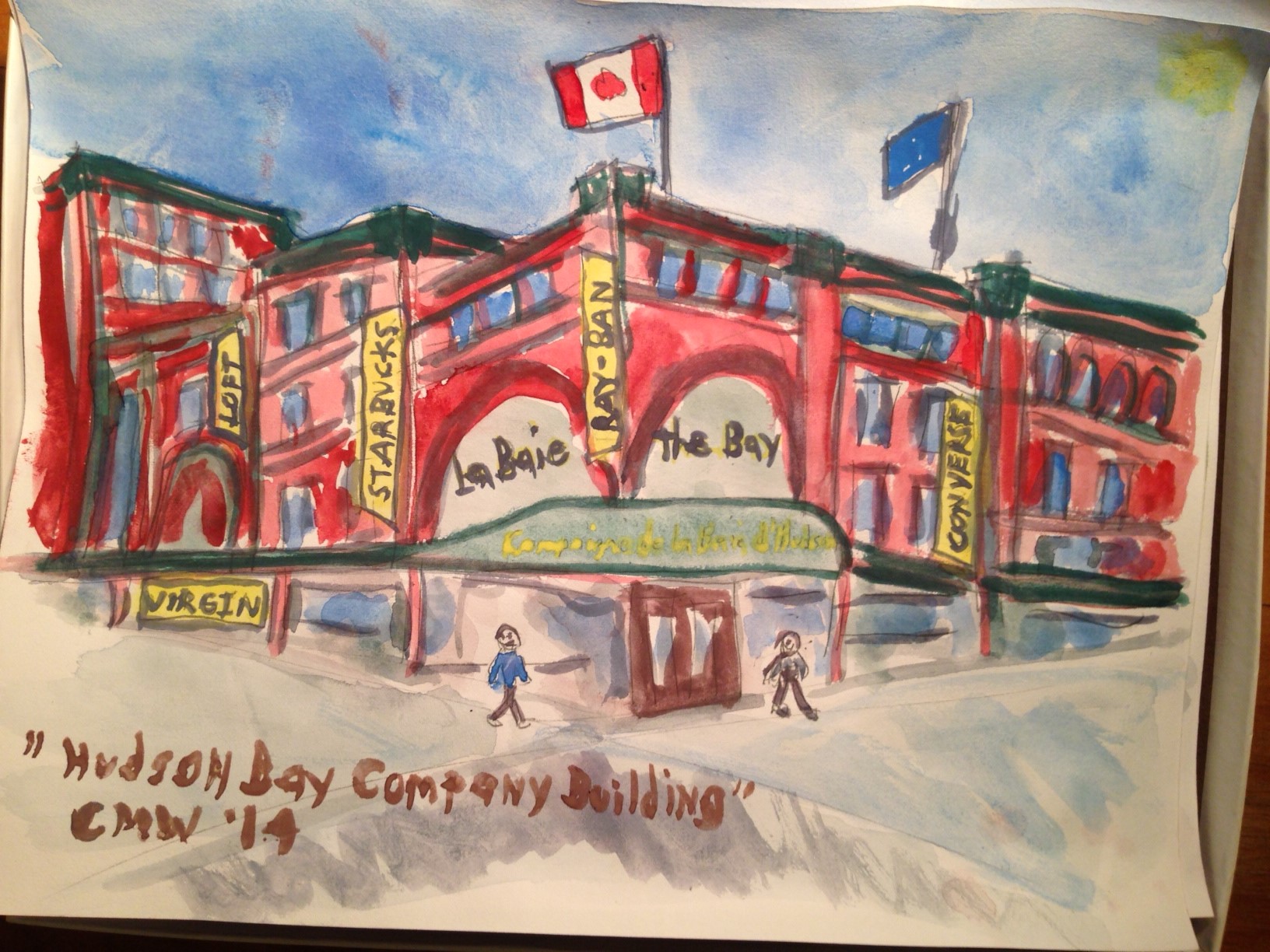
Refinery Blast Venezuela August 2012 42 Killed, 100 injured. (2012) Acrylic on cardboard approx. 14" x 18"

Pink Girl (now in possession of JJ, 2012)

This is a portrait triptych I did of Cecilia Kuhn, the drummer and a singer for Frightwig from San Francisco. (Approx 12" x 12" x 1", Xerox paper, glue and acrylics on wood.)
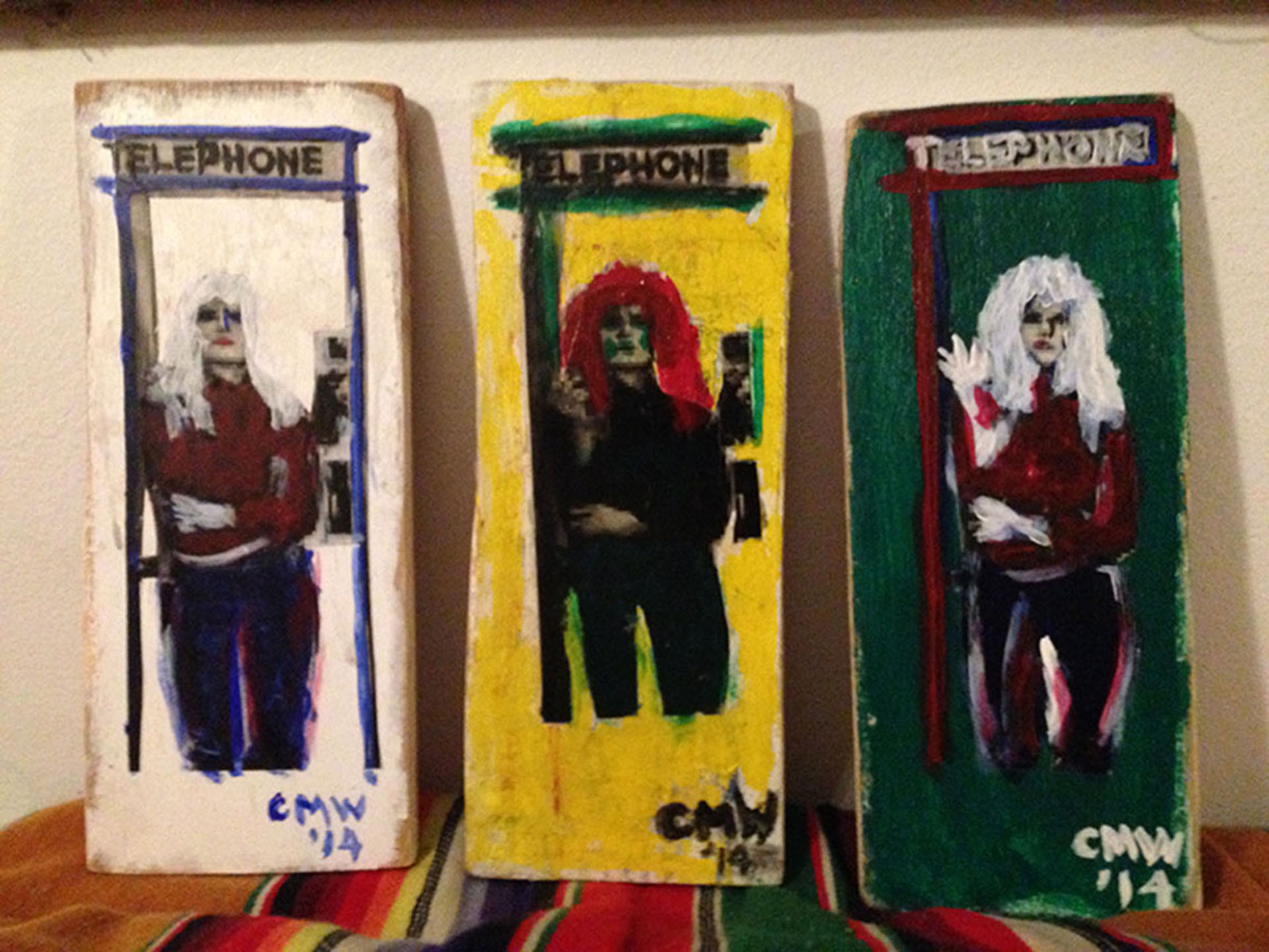
Soviet Woman, one of a series, one was a wedding present, another is at the New School economics department. Xerox paper, glue, acrylic and Mod Podge.
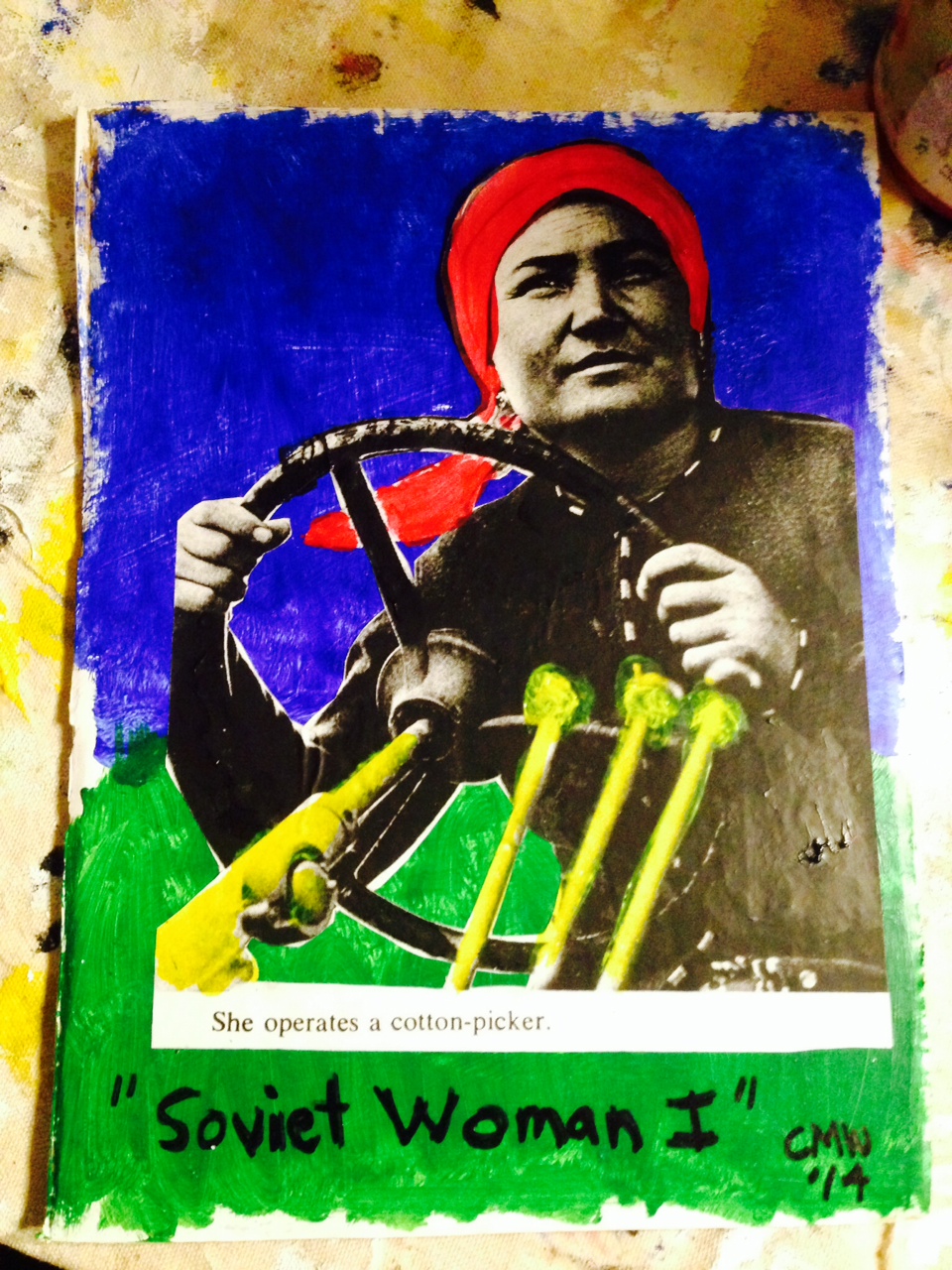
Still Life : Fruit from Sunset Park, Brooklyn (a few minutes before they became a healthfood shake, 2013).
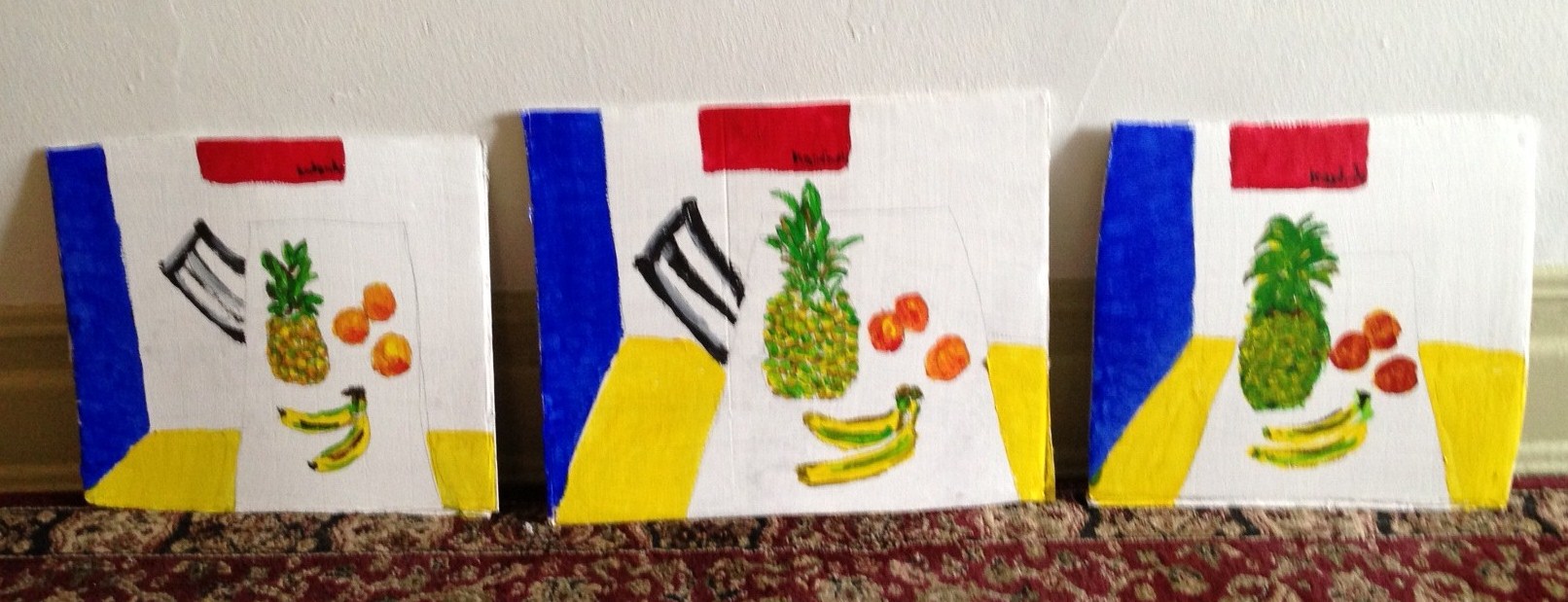
Washington, DC, one of a series

Here is me with some of my art, May 2017
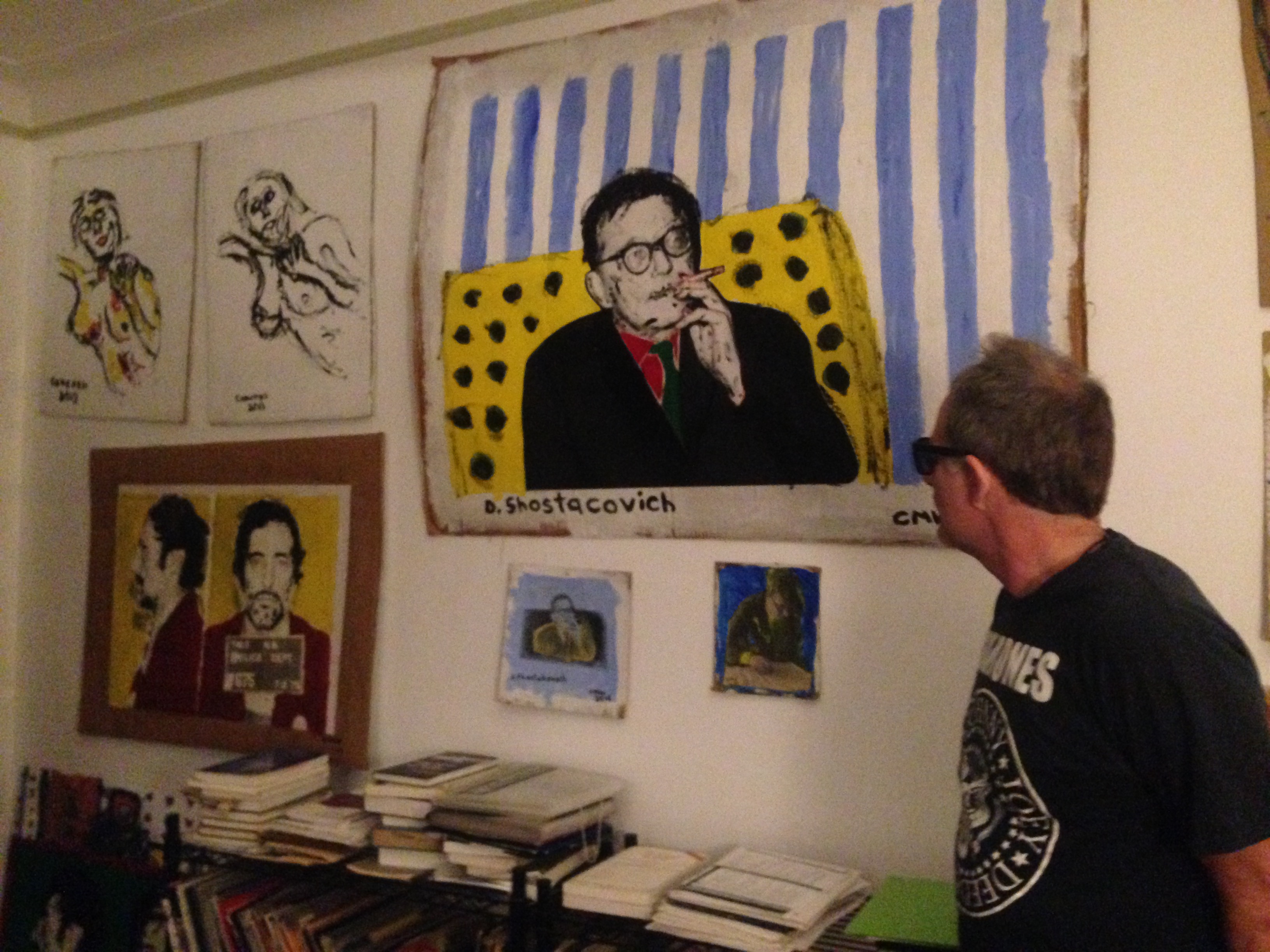
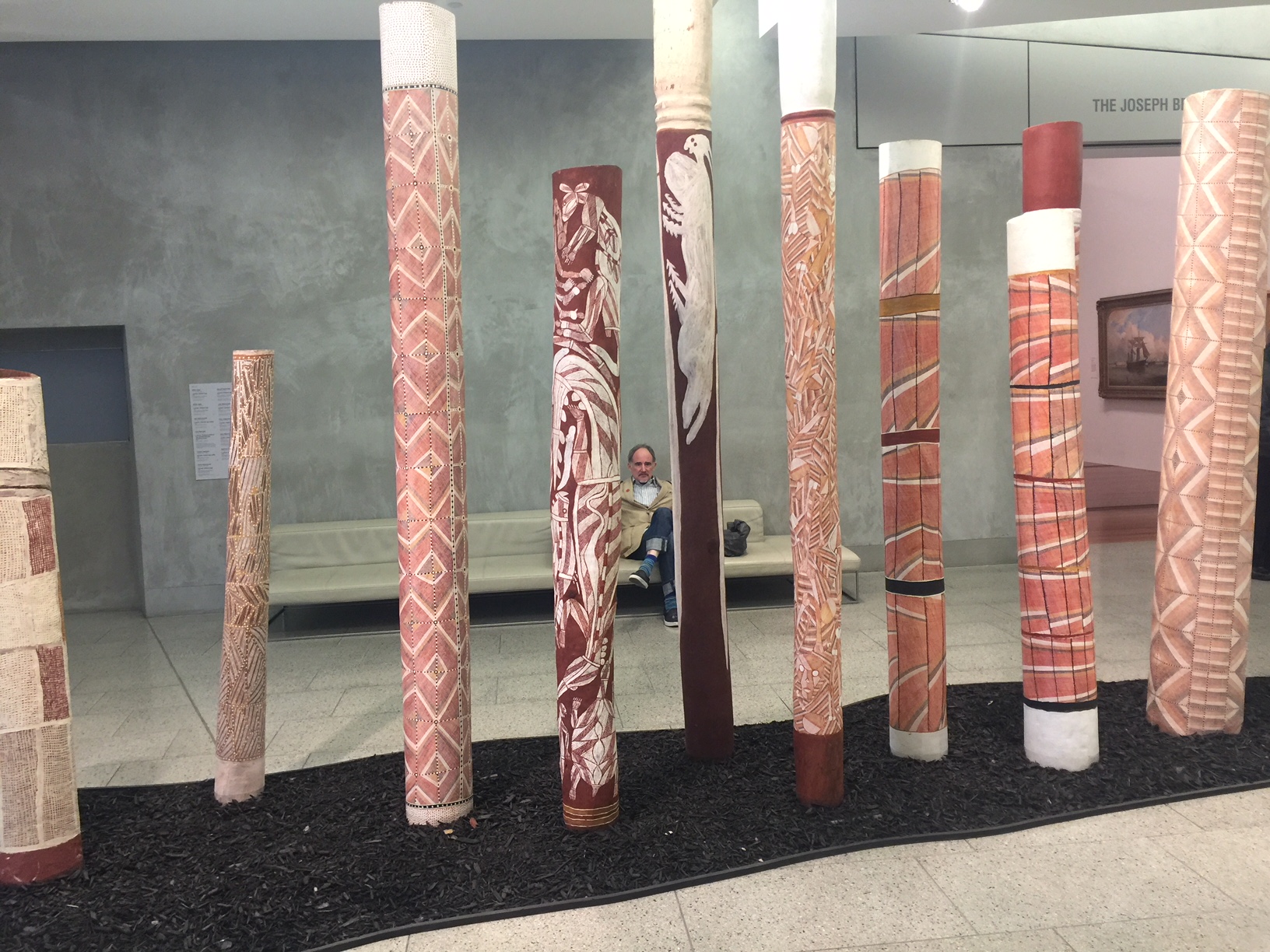
Australia Museum Sydney. Summer 2019.
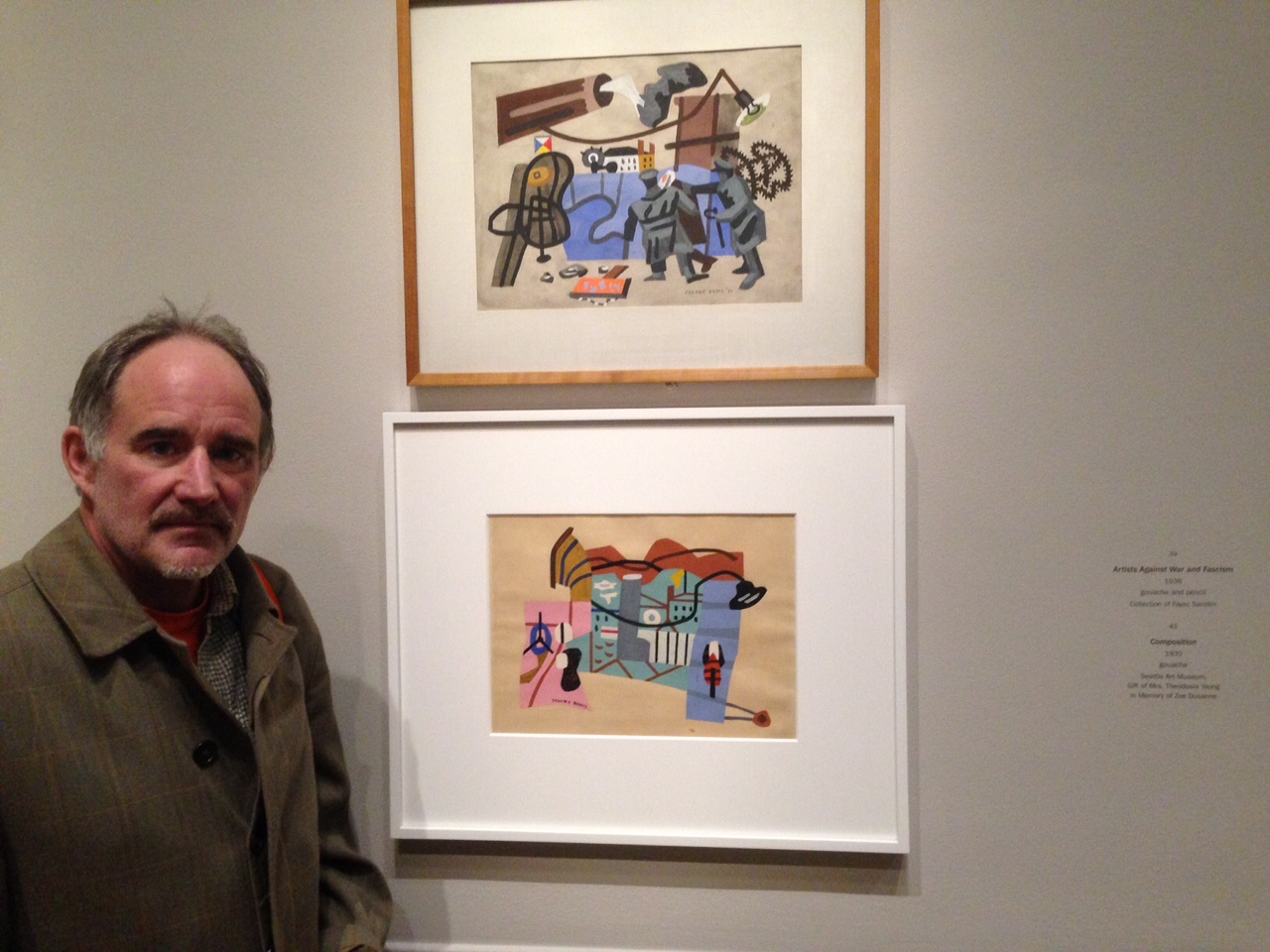
This is me at the Stuart Davis exhibit at the National Gallery in DC, November 2016
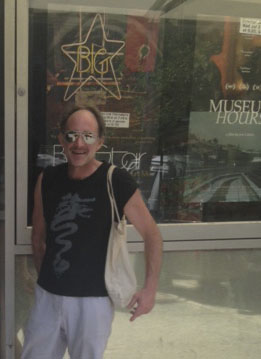
In front of IFC theatre, two great summer movies !, Summer 2013, photo by I.MAO.

Kyoto, Pure Earth Bhuddism, June 2012, photo by c y-h.
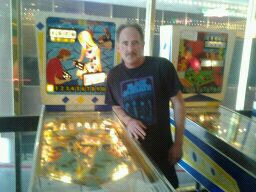
May 2012 in Las Vegas at Pinball Hall of Fame, Riviera Hotel, photo by vv.
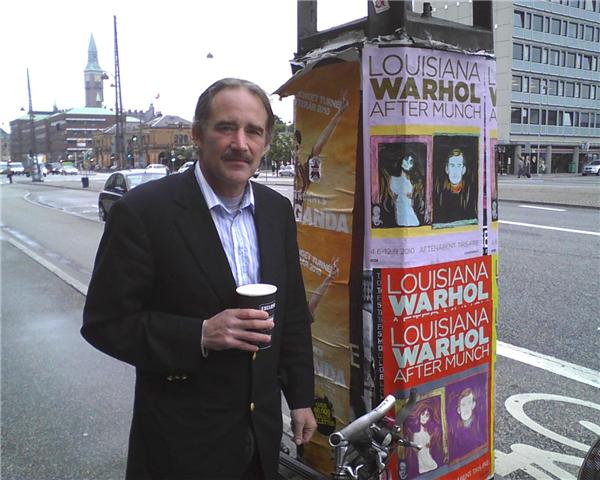
June 2010 in Copenhagen, photo by lls.
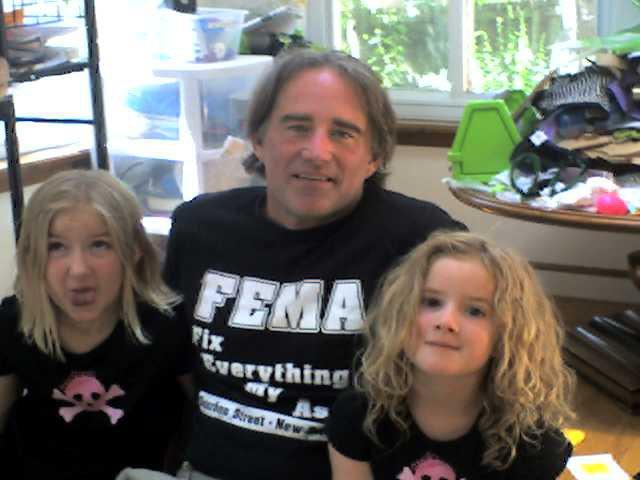
In Denver with my nieces Dorothea and Katie, June 2009, photo by ewf.
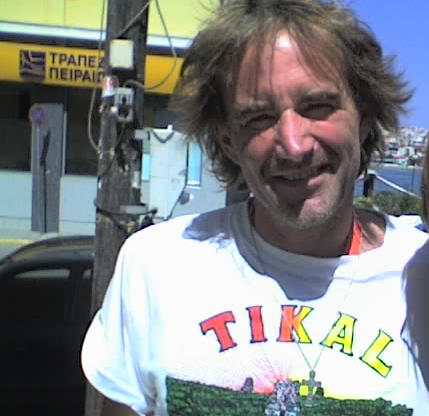
In Greece Summer 2007, photo by N. Time.
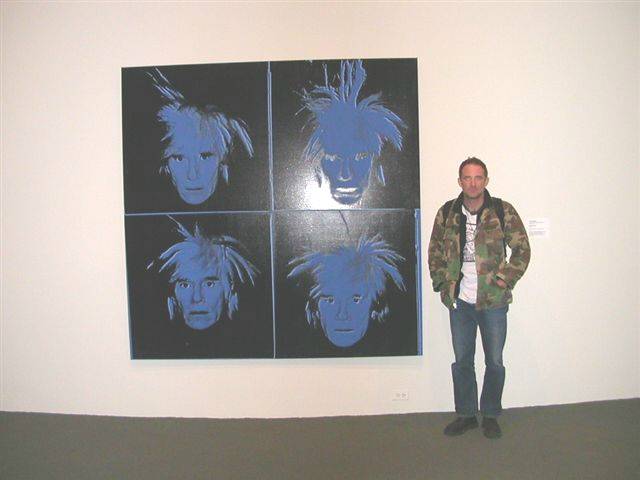
At the Hirshorn Gallery Summer 2005, photo by Ray D.
Most importantly, I have been lucky to have true friends, several of whom are long-lasting and from different walks of life and different parts of the world. My friends are more wise, knowledgeable, talented, creative, forgiving and with better senses of humor than me (the reason, perhaps, that they are my friends). And for this I am thankful.
|